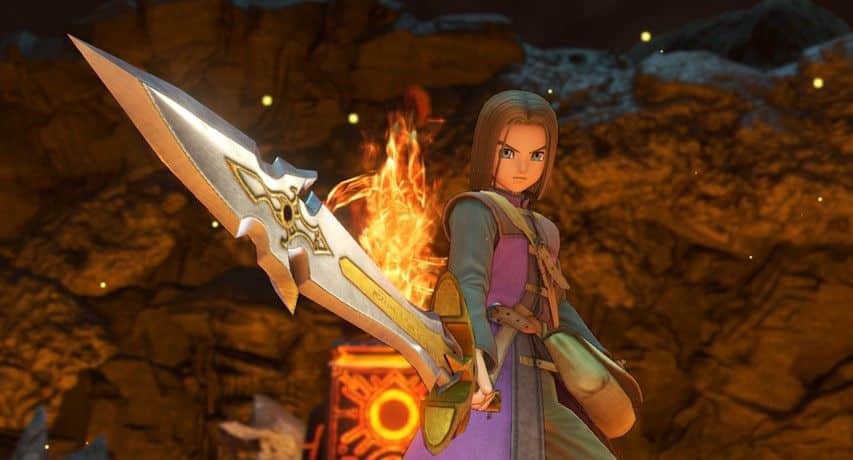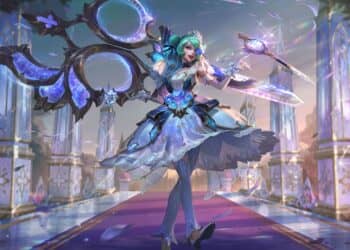Turn-based battle systems were once a true cornerstone of the genre, with variations almost exclusively included in the biggest RPG titles. Booting up an RPG usually meant watching your party members patiently awaiting their opportunity to mull over their options before acting. What was lacking in hectic button-mashing drama was made up for with tense, tactical tests of intellect and strategy.
These days, with more and more action titles being released, classic turn-based RPGs have had more obituaries than South Park’s Kenny McCormick (who ironically has starred in two turn-based RPGs). Each new action-adventure blockbuster spawns a fresh claim that these slower, tactical encounters are confined to history. But no matter how many times these claims are made, they remain highly questionable.
Why are there fewer turn-based RPGs?
The main reasons behind the apparent decline of turn based RPGs are simple – as developers strive for more and more realism in their games, turn based systems can feel out of place. After all, the notion of characters standing there politely waiting for their turn to whack someone with their sword in the real world is bizarre. Action titles can allow for a greater flow, and more impressive spectacles when it comes to combat, making it easier to market and easier to appeal to the mainstream.
They are also proven to be big money-makers – 12 of the top 13 best-selling PS4 games involve action-based gameplay, though many of these triple-A budget games increasingly tend to include RPG elements. No gaming studio wants to go out of business, and if the sales figures indicate the biggest market is in action players, they are surely inclined to appease a greater number of potential consumers.
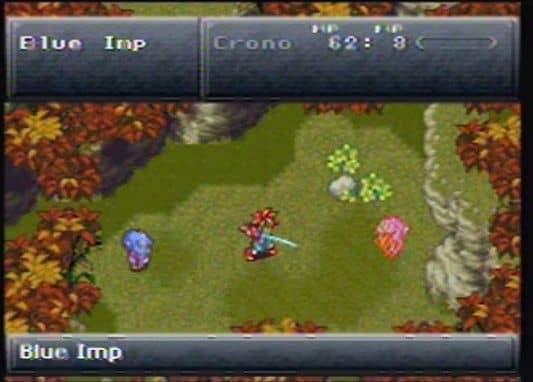
Are turn-based RPGs dead?
Regardless of the above, I would suggest the many eulogies of turn-based RPGs are premature. There are still plenty of new and old fans of the traditional, more tactical battles. On RPG groups and forums there are near-constant requests for new turn-based recommendations. More importantly, in recent years there has been a surge of excellent, high profile titles that suggest there is still an appetite to both create and consume such titles.
Here are 12 recent games whose sales figures, critical acclaim and fanbase passion surely prove that there is still plenty of life in turn-based RPGs yet. The most promising thing is that so many of these games feature such a great variety of different turn-based systems, with lots of novel ideas still keeping the concept fresh.
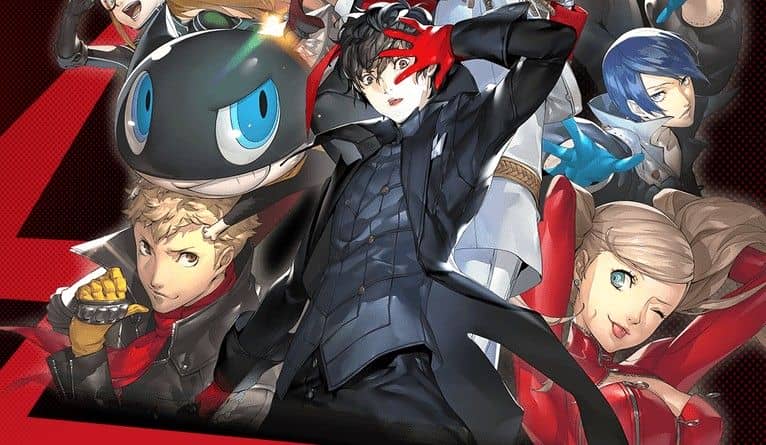
Persona 5 Royal
Released: 2020
Platform(s): PS4
Featuring a slick battle system, Persona 5 and its definitive edition Persona 5 Royal took the world by storm. Royal’s Metacritic score of 95 makes it one of the most acclaimed games of all time, and the highest aggregate of any JRPG – all with a turn-based battle system. The combined sales of these two games are estimated at around 5 million units, with the Persona series now firmly promoted from niche cult status into the mainstream spotlight.
The responsive controls and brilliant music meant that encounters felt lively and exciting, helped by one of the most stylish interfaces in gaming history. For what it’s worth I think the battle system could do with a bit of refinement as combat became fairly systematic once the basics are mastered. Most battles end up being a case of hitting weak spots via baton passes or switching Joker’s persona before all enemies were on the ground and primed to be destroyed by an all-out attack.
Whilst details of Persona 6 are still hard to come by, I’d be incredibly surprised if Atlus turned away from its roots in the next, hotly-anticipated instalment. Turn-based combat is part of Persona and Shin Megami Tensei DNA, and though I’d like a few tweaks to the battle system, it’s surely a banker.
As a side point, Persona 4 Golden’s June 2020 Steam release stormed to half a million sales within a month, further underlining the current desire in the West to enjoy these excellent turn-based RPGs.
- RELATED: Persona 5 Royal Review
- RELATED: The best RPG soundtracks of the generation
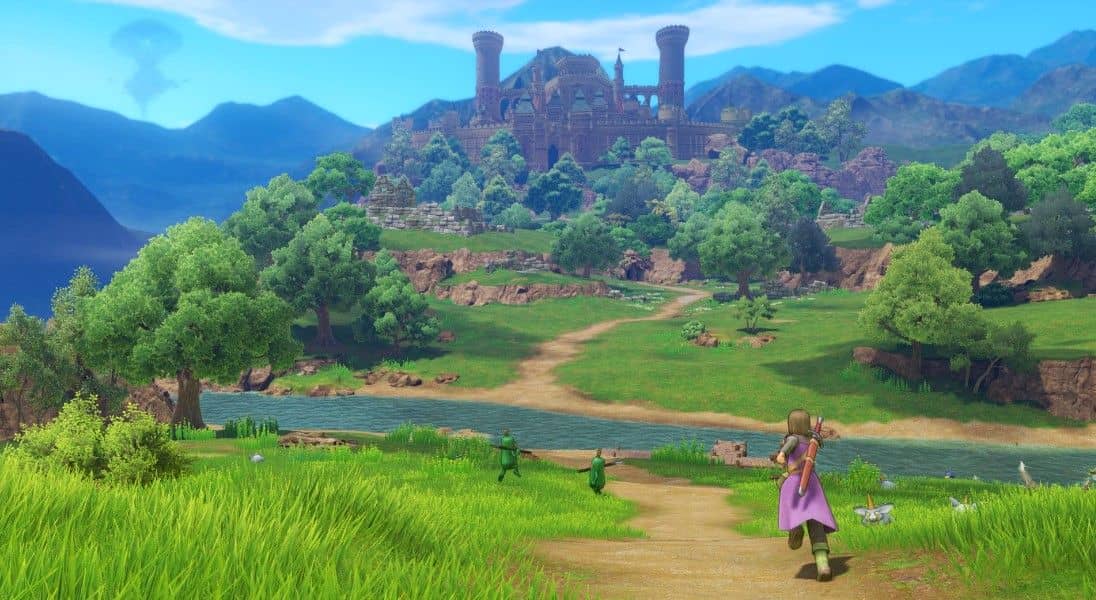
Dragon Quest XI
Released: 2017
Platform(s): PS4, Nintendo Switch, PC, 3DS, Xbox One
The eleventh main entry to the Dragon Quest series was a giant, 80-hour love letter to its traditional roots. Its bright visuals, sprawling sense of adventure and quirky cast were clearly inspired by everything preceding it in the popular series.
Though characters entered battles by engaging enemies on the field and could run around the enclosed arena, this was an arbitrary mechanic. In games like Xenoblade Chronicles, attacking an enemy from behind with specific skills could deal additional damage, but Dragon Quest XI’s movement around battle made no difference whatsoever, meaning it remained an incredibly traditional RPG.
Its general story and gameplay were also textbook RPG fare, and the signs would suggest this was very welcome. Worldwide sales of over 6 million units represented a huge commercial success, with a strong critical response following suit. There is no reason to believe Dragon Quest XII, currently in development, is going to deviate from its tried-and-tested turn-based combat – especially when the action is covered in spin-offs like Dragon Quest Heroes.
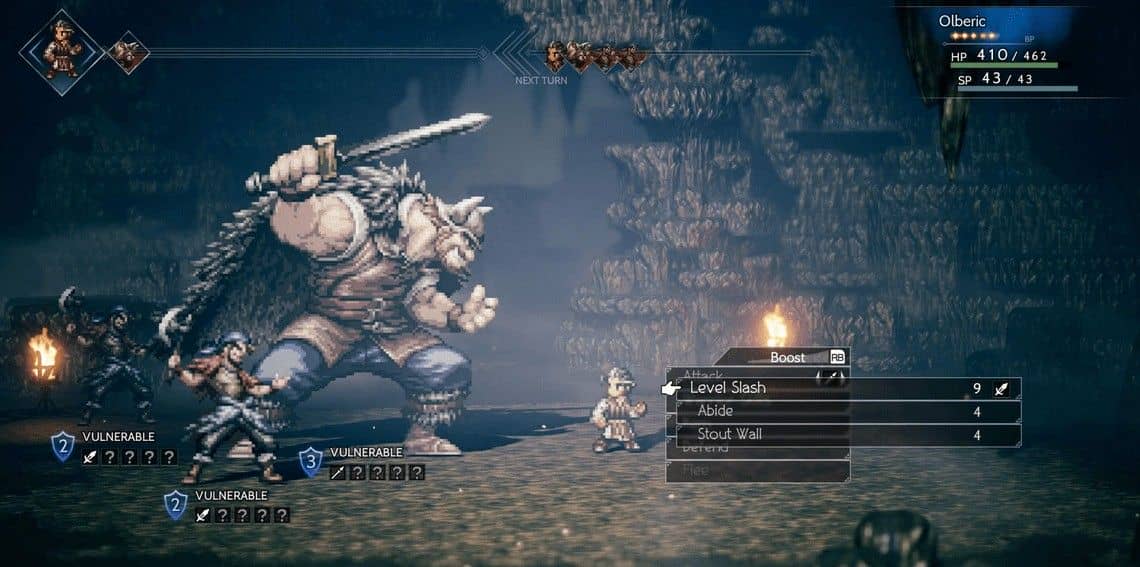
Octopath Traveler
Released: 2018
Platform(s): Nintendo Switch, PC
It wasn’t just a turn-based battle system that evoked huge nostalgia whilst experiencing Octopath Traveler. The upscaled 16-bit visuals, featuring a top-down view and charming character sprites, cannot fail to take any SNES RPG fan back in time. Though it is often heralded as a spiritual successor to Final Fantasy 6, Octopath Traveler is its own entity, with an unusual dynamic that has each of the eight characters embark on their own self-contained story.
There was a mixed reception to this, as the efforts to distinguish each character’s tale went too far. The party members not directly tied to the chapter being played were excluded from the dialogue, and would even disappear from the screen during pivotal scenes. When a battle soon commenced, they would be back involved and putting their lives on the line despite no apparent investment in the story.
On the bright side, the turn-based battle system was superb, accompanied by an utterly masterful soundtrack. Characters each had specific jobs, with additional customisation available as the game progressed. Enemies had set weaknesses that needed to be struck a set number of times to ‘break’ them, knocking their turn right to the back of the queue and opening an opportunity to strike huge damage. Battle points (BP) added an interesting dynamic, gained each turn to either power up abilities or grant consecutive attacks. The boss battles were invariably challenging affairs that demanded a keen tactical eye and were highly satisfying when strategies paid off.
Octopath Traveler’s commercial success, with over 2 million copies sold, helped ensure a sequel is on the horizon. This is hugely likely to again cash in on the continued yearning for traditional RPGs, and will surely feature turn-based battles.
- RELATED: Octopath Traveler Review
- RELATED: Octopath Traveler sequel – how can it improve on the first?
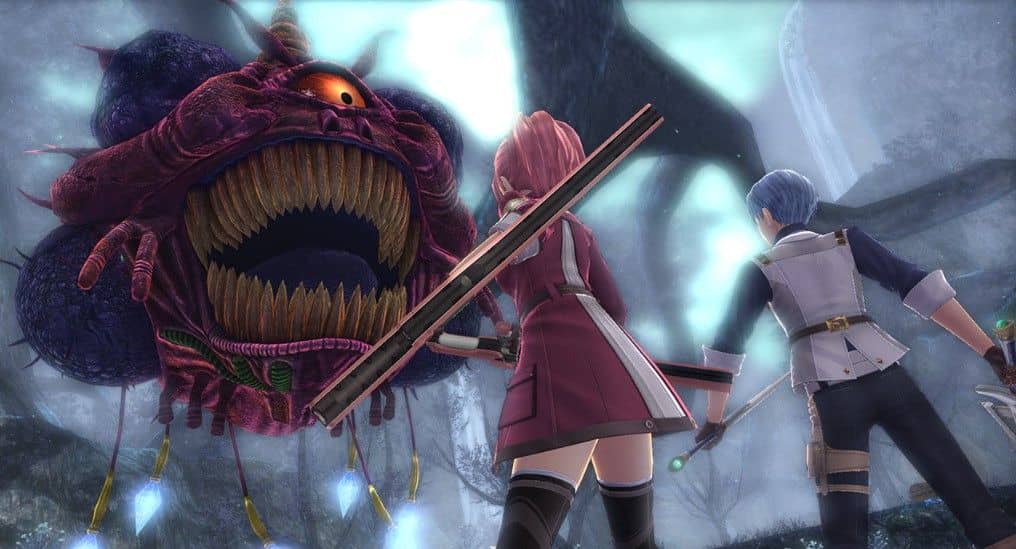
The Legend of Heroes: Trails of Cold Steel 4
Released: 2020
Platform(s): PS4, PS5
Whilst the big names like Final Fantasy, Persona and Dragon Quest have taken most of the recent JRPG limelight, the underrated Legend of Heroes subseries has quietly gone about its business and slowly built a growing, avid fanbase.
Trails of Cold Steel is the most recent series, connected to the Trails in the Sky trilogy and the Crossbell duology (which are finally getting localised). It’s the series I find myself recommending the most, with an enormous cast of wonderful characters, supreme world building, and one of the best turn-based battle systems currently available.
Characters equip orbments, not unlike Final Fantasy 7’s materia, conferring stat boosts and magic skills that consume EP. They also possess craft skills, bespoke abilities unique to each character that cost CP. Also thrown into the mix are battle links, where characters can unite to attack together, and powerful S-crafts which cost considerable CP but can be used to jump ahead of the turn order. These elements combine for great tactical battles that can be tackled in several different ways.
Though any turn-based JRPG fan will find hundreds of hours of enjoyment in the Trails series, the news is bittersweet. The next title, Trails Into Reverie will feature turn-based battles, but the following Falcom RPG will be turning away from them. Since this is the same company who has created the excellent action RPG series Ys, we can live with it. In the meantime, if you are new to the series there are still nine terrific, connected turn-based games out there to enjoy with a tenth, Trails Into Reverie, on its way.
- RELATED: Trails of Cold Steel 3 Review
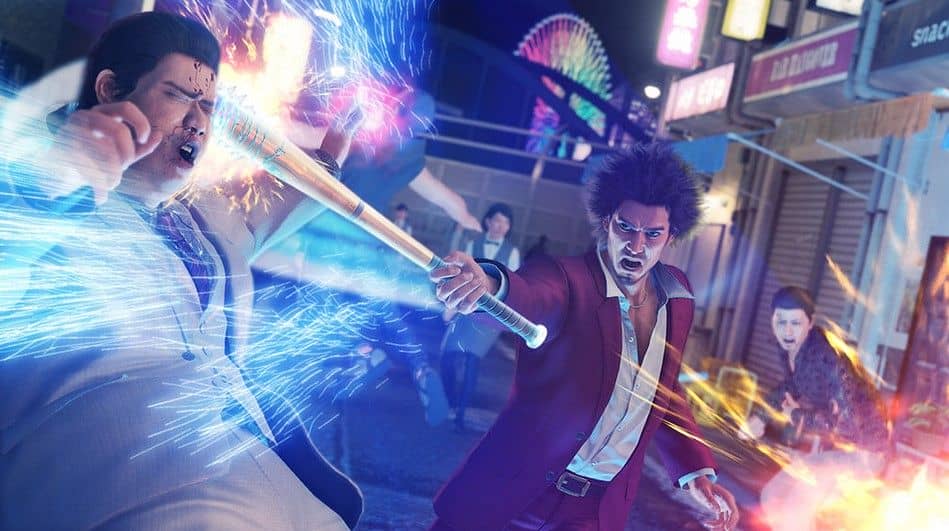
Yakuza: Like A Dragon
Released: 2020
Platform(s): PS4, PS5, PC, Xbox Series X/S
Plenty of turn-based series may be transitioning to action combat, but Yakuza’s most recent entry shows this occasionally works the other way.
It’s pretty debatable whether previous Yakuza games were RPGs, but there is no such ambiguity when it comes to Yakuza: Like A Dragon. The arcadey beat-em-up gameplay of the series has been cast aside in favour of a fairly old-school turn-based battle system that has characters take advantage of environmental factors and opportune timing to boost damage.
The combat alterations are accompanied by a new protagonist, making Like A Dragon a fantastic entry point for new players – especially traditional RPG fans. The popular series centres around the Japanese mafia, whose unlawful actions are curiously balanced against plenty of humour and fun. You’ll likely spend as much time engaging in dangerous criminal activity as playing cards, go-karting and belting out karaoke.
Like A Dragon generally gardenered favourable reviews, but such a significant gameplay departure is never going to please everyone. It remains to be seen whether the Yakuza series continues to dabble in turn-based RPGs in future.
- RELATED: 8 great RPGs set in modern Japan
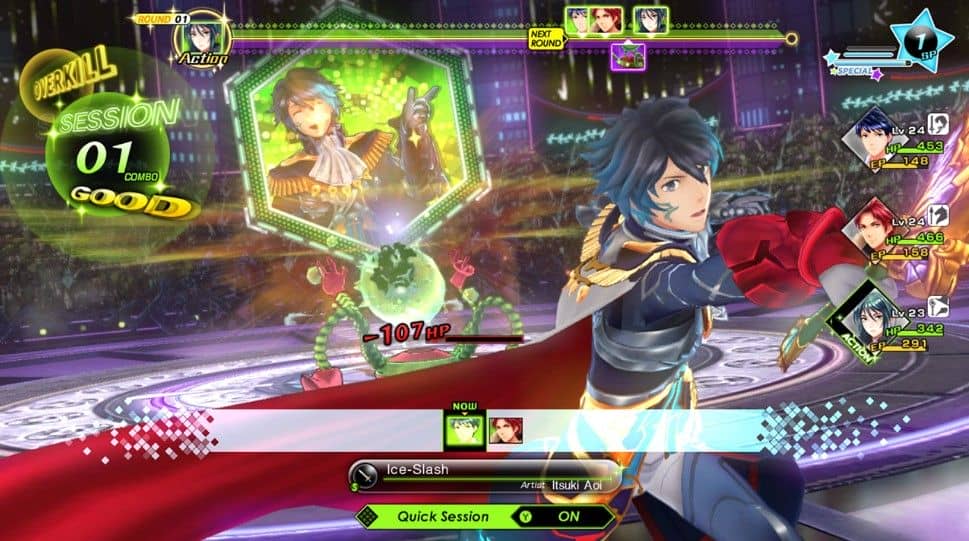
Toyko Mirage Sessions #FE Encore
Released: 2020
Platform(s): Nintendo Switch
Yet another enhanced version to an existing title, Tokyo Mirage Sessions #FE Encore took a cult RPG from the doomed Wii U, and added some additional content in an attempt to penetrate the far greater Switch audience.
Its plot delves into Tokyo’s idol culture, as party members strive to channel their inner performers to unlock their potential and defeat the dangerous Mirages causing disruptions and abductions around Japan’s capital. Though some fans were angered by some of the Western censorship decisions, which likely contributed to disappointing sales figures, the game received positive reviews from critics with many praising its combat.
The battle system is a classic Shin Megami Tensei turn-based affair, with a few interesting twists. When weaknesses are hit by one character, other cast members can join in the move by activating a further session attack. These are learned separately to normal skills, and are passive abilities purely there to chain combos together. The more attacks that land, the quicker the Special Performance gauge fills, allowing powerful skills to be utilised. Meanwhile, ad-lib performances may activate, where a character can literally burst into song at random to power up an attack.
The all-singing, all-dancing vibe isn’t for everyone, but any fan of J-Pop is likely to find huge enjoyment in this niche title, which also features numerous Fire Emblem crossovers.
- RELATED: Tokyo Mirage Sessions #FE Encore Review
- RELATED: Is Tokyo Mirage Sessions like Persona? A full comparison
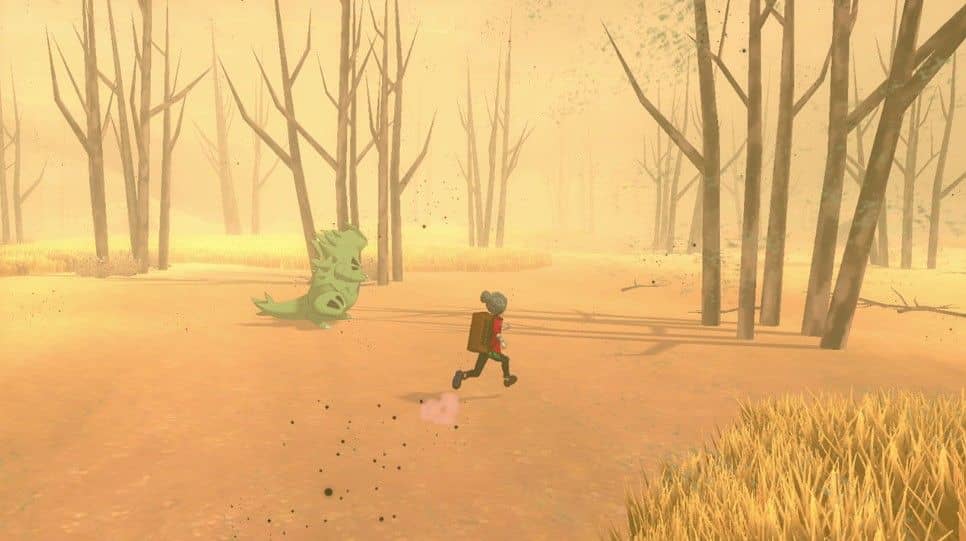
Pokemon Sword and Shield
Released: 2019
Platform(s): Nintendo Switch
Still one of the most popular video game franchises ever, the 2019 Switch release certainly divided people. Whilst not reaching Last of Us Part 2 levels of polarisation, Metacritic shows a huge discrepancy between the critic aggregate of 80 and the user score currently standing at 4.6, with well over half of user reviews being hugely negative.
However, the huge fan backlash over the lack of previous Pokemon being included didn’t stop another colossal financial success for Nintendo. The sales figures show Sword and Shield shifted over 18 million units, meaning the titles are among the highest sellers on the Nintendo Switch.
Pokemon is hardly known for its great challenge or deep combat mechanics, but its simple turn-based battle system is a mainstay of the series that people are clearly still willing to accept. In fact, the battle system was one of the few things that largely avoided complaint, with most Pokemon fans bemoaning the incomplete feel, mediocre graphics and uninspired, linear nature of the title.
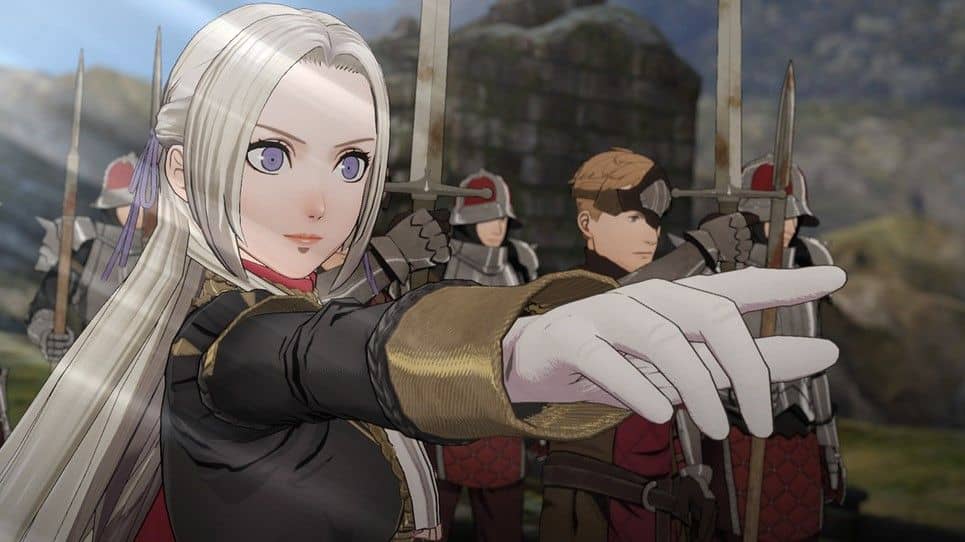
Fire Emblem Three Houses
Released: 2019
Platform(s): Nintendo Switch
The strategic, grid-based combat of the Fire Emblem series is a different style of battle system altogether to traditional, party-centric RPGs. Still, the recent Nintendo Switch release has the series feeling more like a JRPG than ever before, with its Persona-esque relationships and anime tropes arguably going further than older Fire Emblem titles.
As ever, a squad of different unit types are led into the fray, with players moving them around the board like chess pieces. The perpetual threat of permanent death to characters on classic mode ensures every move must be carefully considered. There’s nothing quite so harrowing as losing a beloved troop, and can lead to the agonising decision of whether to replay the entire stage you’ve just beaten to try and make it through unscathed.
The series was actually under huge threat until the success of Fire Emblem: Awakening, and the response to Three Houses would indicate the series is back on track. The excellent Metacritic aggregate score of 89 along with sales estimated in the region of 3 million units mean Fire Emblem’s strategic turn-based gameplay is likely to stick around a while longer.
- RELATED: 15 of the best Nintendo Switch RPGs
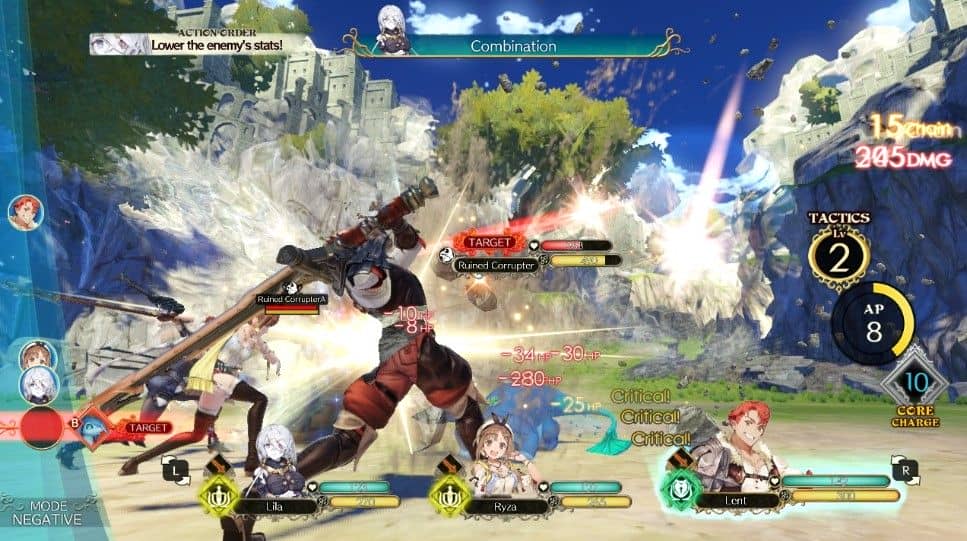
Atelier Ryza: Ever Darkness and the Secret Hideout
Released: 2019
Platform(s): PS4, Nintendo Switch, PC
The ridiculously dense Atelier series now has over twenty titles, and admittedly Atelier Ryza features a battle system that starts to stray away from the traditional combat of previous entries. Though battles occur in real time, there are too many turn-based elements for Atelier Ryza to be considered an action RPG.
Instead, an ATB system is utilised, where characters still have to wait their turn before striking enemies. Building up action points and increasing the party’s tactical level means there is plenty of strategy employed rather than button mashing. The game also stops time for certain skills to be selected, and overall the new-look battle system has generally been received well by fans.
Outside battle, alchemy remains a vital aspect of gameplay where materials are synthesised into useful items. This aspect has also undergone a change, with the mechanics considered more user-friendly than previous titles but remaining no pushover to master.
Atelier has never been an RPG juggernaut but Ryza was the best-selling entry in the series and is a great starting point for new players of the otherwise fairly cult titles. A direct sequel is on its way, and although the trailers indicate some tweaks the battle system, it looks to be another hybrid of turn-based and real time combat.
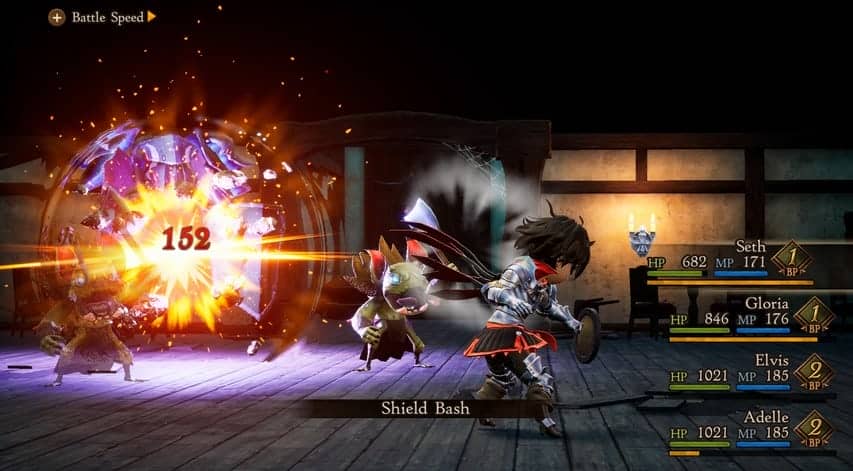
Bravely Default II
Released: 2021
Platform(s): Nintendo Switch
Not to be confused with Bravely Second, the third main entry game in the oddly-named Square Enix series once again dishes up heaps of nostalgia, and actually doesn’t require any knowledge of prior titles to be enjoyed.
Bravely Default II has a traditional turn-based battle system, and is complimented by a neat job system with all the old favourites included. However, Black Mage, White Mage and Monk are accompanied by some more unusual jobs such as the all-powerful, knightly Bastion or the spooky Phantom.
There are certainly some comparisons with Octopath Traveler – not only with the job similarities, but Bravely Default II also allows players to save up BP to use several moves consecutively. This adds a welcome bit of strategy to proceedings and challenges you to pick the right moments to let loose.
It’s fair to say Bravely Default II otherwise rarely strays outside the box, with a fairly bog-standard RPG plot. However, any fans of the first games – and especially fans of old-school Final Fantasy, should definitely give it a go.
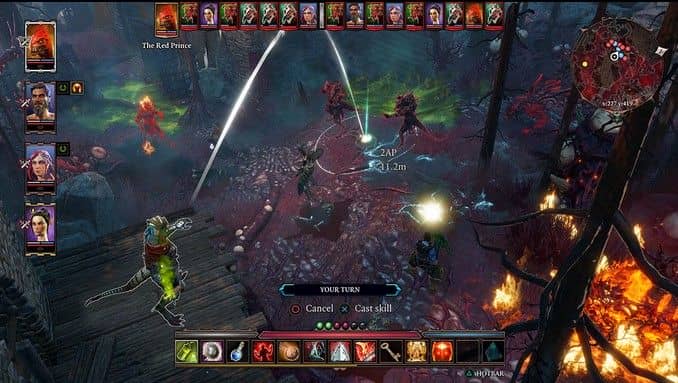
Divinity Original Sin 2
Released: 2017
Platform(s): PC, PS4, Xbox One, Nintendo Switch
Showing that Western RPGs can tackle turn-based battle systems as well as their Japanese counterparts, Divinity Original Sin 2 is considered as one of the best role-playing games of all time, almost unanimously regarded as a masterpiece after raising millions of dollars on Kickstarter.
Its excellent tactical battle system allowed players to consider a turn order whilst deciding how to spend their action points. Environmental factors such as increasing range with high ground, or status-affecting surfaces added different strategic decisions. Grasping the countless elemental effects is also crucial in navigating what can be a pretty tough game, even without testing yourself on the highest difficulty setting.
The spin-off/sequel, Divinity: Fallen Heroes will also feature a turn-based battle system, with its main combat tweak to alternate turns between the whole battling parties rather than individual party members. If the previous Divinity titles are anything to go by, this will be well worth waiting for, but unfortunately the title has been put on hold indefinitely with its original 2019 release date already long gone.
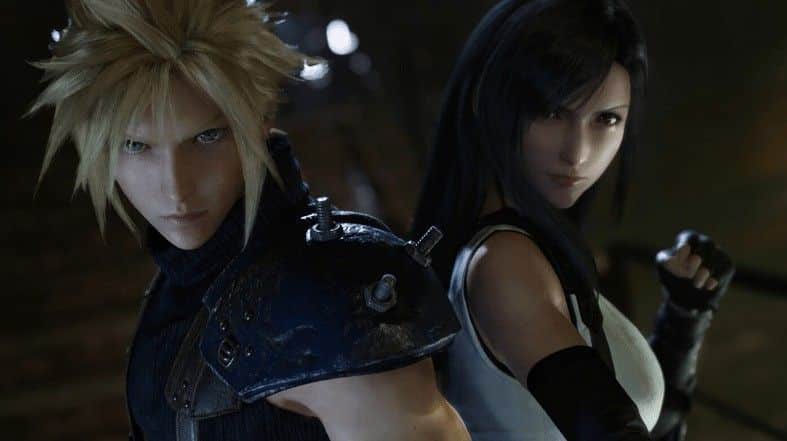
Final Fantasy 7 Remake
Released: 2020
Platform(s): PS4
No, I’m not crazy. Final Fantasy 7 Remake features a hybrid of action and turn-based combat, where characters fill up their ATB bars by attacking, and slow down time to spend them on more powerful magic or skills.
The reason I feel compelled to mention it is that I wonder if, once again, Final Fantasy 7 will start an RPG revolution. The combat was absolutely fantastic, and the penny dropped somewhere around 10 hours that this is best played as a turn-based game rather than an action one. And I don’t mean the simplified classic mode.
Enemies soon focus on the player being controlled, meaning it’s best to switch up so you aren’t wasting time guarding and dodging – the AI can do that competently enough. Furthermore, ATB bars fill much faster when you control a character themselves. Some have suggested the AI could have been more aggressive, but I think they have missed the point. The game is meant to be played with characters effectively taking turns to attack enemies before they are targeted, especially against bosses.
Though this includes real-time action, the omission of any AI tactical control akin to Final Fantasy 12’s gambits makes it feel like it’s all down to the player. The comments made by the characters whilst switching over also add to the vibe that it’s a case of one character at a time going on the offensive and taking the reins.
Other games have done similar things. For example, the Tales Of series has the option to access the menu and direct characters to use specific artes. Another remake, Trials of Mana, required a freeze of time to select magic moves, but neither go as far as Final Fantasy 7 Remake. I think this was a terrific move from Square Enix and I can’t wait to see how they develop the battle system in future Remake instalments.
- RELATED: Final Fantasy 7 Remake – 50 things you may not know
- RELATED: Final Fantasy 7 Remake – Why Tifa is so loved
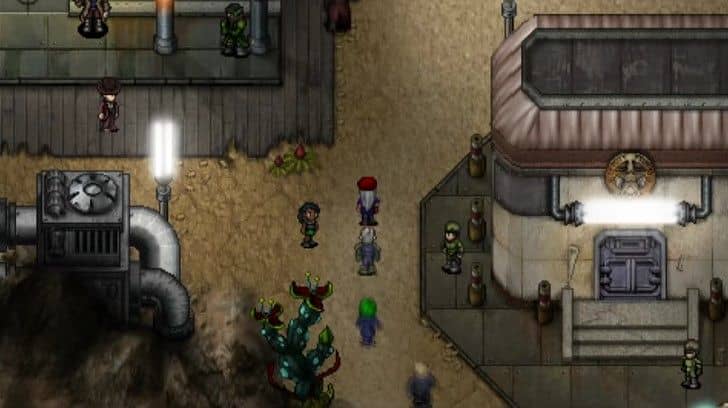
Lower budget and indie games
If striving towards lifelike realism causes a downturn in turn-based RPGs, then comfort can be found in the fact that plenty of lower budget titles still rely on good old-fashioned turn-based battle systems for their combat.
Square Enix subsidiary Tokyo RPG Factory have produced two relatively recent RPGs fitting the description, namely I Am Setsuna and Lost Sphear which have drawn decent receptions. Unfortunately, since action title Oninaki the future of Tokyo RPG Factory is a little unclear, with reports of big losses and no further announced games.
In the indie scene, Cosmic Star Heroine proved popular with its Phantasy Star-style sci-fi setting and interesting plot, with plenty of other exciting titles on the horizon. I love the look of Sea of Stars, a Chrono-Trigger inspired adventure with Super Mario RPG-esque button timing. Elsewhere, a spiritual Suikoden sequel, Eiyuden Chronicle, promises an ode to the classic JRPG genre involving a host of developers with legendary RPG pedigree from the likes of Tales, Wild Arms and Suikoden itself.
If triple-A studios really do cast our beloved turn-based escapades to one side, there’s always RPG Maker.
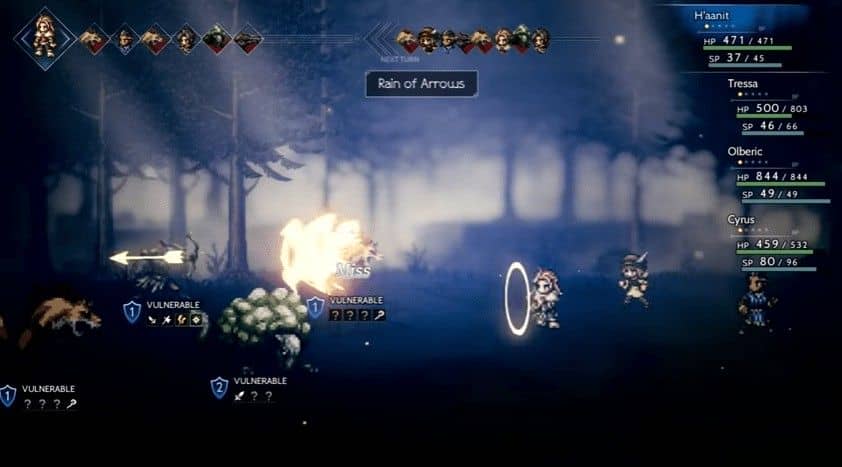
Conclusion
Are turn-based RPGs dead? In examining the games above, I believe there are two main conclusions.
First, even those straying away from traditional roots aren’t ditching them completely. Hybrid battle systems feature in the likes of Final Fantasy and Atelier, with Legend of Heroes looking to follow suit. This is by no means a tragedy. Like any creature looking to stand the test of time, perhaps turn-based RPGs will experience an evolution rather than an extinction.
Secondly, it’s clear lots of big names are still keeping turn-based battle systems alive and well, with plenty of traditional systems still out there to satisfy what is clearly still a massive demand. You can fold up the most recent obituary and keep it in the drawer for at least a few more years. The turn of turn-based is far from over.

